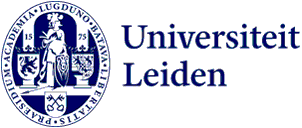
Why North Korea and Southern Africa are dependent on each other
North Korea may seem like an isolated country but it has strong ties with African regimes. This alliance, which trades in arms despite international sanctions, is increasingly operating out of the liberal world order’s sight, PhD candidate Tycho van der Hoog warns.
Geographically and culturally, Africa and North Korea are worlds apart. But the two came together in the 1960s. ‘In Southern Africa, black liberation movements arose that were dependent on foreign sponsors. Korea had just been divided into North and South, and both countries were seeking allies. North Korea decided to invest in the African freedom movements, believing that these were the governments of the future.’ A strategic choice that the country still benefits from to this day, Van der Hoog’s research has shown. Most countries in Southern Africa today are indeed governed by former liberation movements.
Survival instinct
Relations between North Korea and the Southern African countries are based not on ideology but on their survival instinct. ‘The former liberation movements want to stay in power at all costs, and North Korea provides the means to do so. It supplies weapons on a large scale and provides military training.’ North Korea is also an inspiration for the African regimes. ‘Despite extreme pressure and sanctions from abroad, the regime is still in power decades later. That success inspires the movements in Africa.’
‘Money flowing from Africa to Pyongyang allows the regime to stay in power’
North Korea’s relations with the African regimes provide a good source of income, despite the strict sanctions against the country. The money is mainly earned in the aforementioned arms trade and military training along with criminal activities and the construction of monuments. ‘Over the years North Korea has established extensive criminal networks in Africa along the routes of diplomatic missions and the trading offices of the businesses selling the monuments and weapons. Drugs, gold, counterfeit cigarettes and other illegal goods are smuggled back and forth through these networks. Money flowing from Africa to Pyongyang allows the regime to stay in power, develop ballistic missiles and have a nuclear programme.’
Circumventing sanctions
According to Van der Hoog, there is little insight into how North Korea circumvents the sanctions regime. ‘A UN sanctions committee issues an annual report citing multiple African connections. But that is just the tip of the iceberg.’ The African countries involved regularly refuse to respond to UN questions. In addition, the committee’s mandate was blocked after Russia vetoed its renewal in March. ‘So we now have even less of an idea of what is happening.’
Van der Hoog warns that North Korea’s network is increasingly hidden from view while its relations are only becoming stronger. ‘These diplomatic networks operate as a kind of autonomous company. This means that an elusive alliance is developing that is disengaging from the liberal world order.’
What can the West do?
There is little point in putting more pressure on North Korea, says Van der Hoog. ‘The gaze must shift to the partner countries. We have to understand why they are dependent on North Korea. If a country relies on them for certain arms programmes, the West could offer a better alternative instead of abandoning these countries to their fate.’ Van der Hoog gives the example of Tanzania, a country with good ties to Western countries that is still dependent on North Korean engineers to maintain its fighter planes.
Van der Hoog’s fascination with relations between North Korea and southern Africa arose during his master’s research in Namibia. He wondered why the capital of Windhoek was full of North Korean monuments and wrote his master’s thesis on this before commencing his PhD research. He now works for the Netherlands Defence Academy, where he conducts wider research into the diplomatic relations of African countries. ‘So not just relations with North Korea. I’m more or less finished with that topic.’
‘There are still misconceptions caused by Western, almost colonial thinking’
Van der Hoog believes that Western countries should look more at ‘African agency’. ‘We have to understand why African countries want these diplomatic relations and what they want to gain from them. People studying this always look at the advantages for North Korea or at Western countries’ opinions of the situation. We see African countries as a kind of pawn on a chessboard that is being moved by other powers. There are still misconceptions caused by Western, almost colonial thinking. We should look at diplomacy from the African perspective. That’s what I want to dedicate the next few years to at the Netherlands Defence Academy.’
Text: Tom Janssen
Photo: The North Korean Deputy Minister of Public Security inspects weapons at a police academy in Uganda during a 2013 visit. North Korea has helped train the Ugandan police force since 1988.
